10. A thought emerges. When the Mayan sun god paddled across
the ecliptic he had a great fish under his canoe, but he also
carried a great fish on his back:
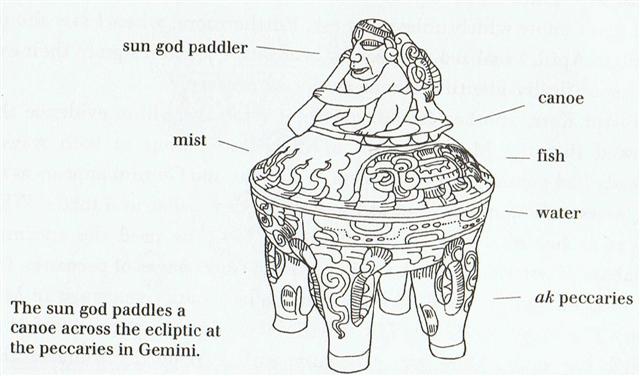
Between this pair of fishes the sun god appeares to emerge, and
we can read the idea as an allusion to the entrance path (vaha
mea) in the
constellation of Pisces:
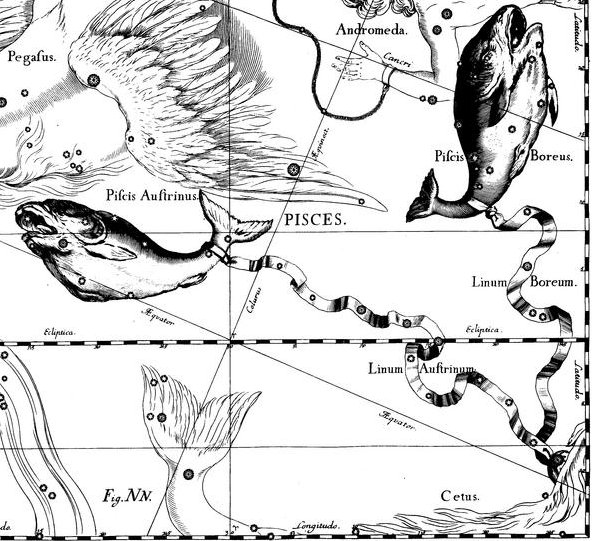
Which suggests the Spring Sun was arriving from the vicinity of the Square of
Pegasus.
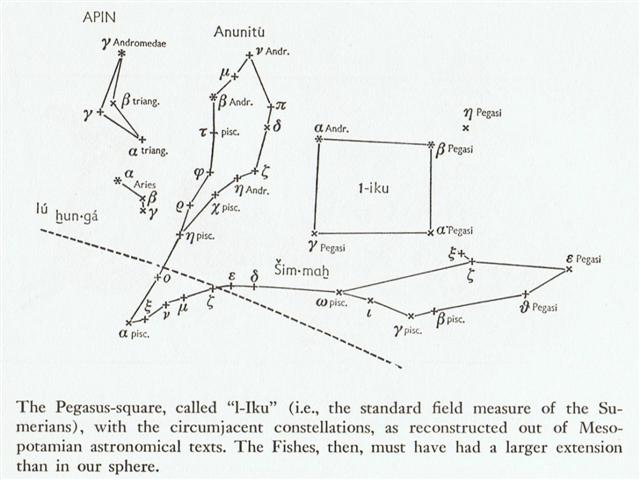
→ There was a Goatfish marking the place opposite to the
dwindling water
Serpent. Thus in between there ought to be Water:
... This [σ
Sagittarii] has been identified with
Nunki of the
Euphratean Tablet of the Thirty Stars, the Star of the
Proclamation of the Sea, this Sea being the quarter
occupied by Aquarius, Capricornus, Delphinus, Pisces, and Pisces
Australis. It is the same space in the sky that Aratos
designated as Water ...

... In China, with Capricornus, Pisces, and a
part of Sagittarius, it [Aquarius] constituted the early
Serpent, or Turtle, Tien Yuen; and later was known as
Hiuen Ying, the Dark Warrior and Hero, or Darkly Flourishing
One, the Hiuen Wu, or Hiuen Heaou, of the
Han dynasty, which Dupuis gave as Hiven
Mao. It was a symbol of the emperor Tchoun Hin, in
whose reign was a great deluge; but after the Jesuits came in it
became Paou Ping, the Precious Vase. It contained three
of the sieu, and headed the list of zodiac signs as
the Rat, which in the far
East was the ideograph for 'water', and still so remains in the
almanacs of Central Asia, Cochin China, and Japan ...
And the sitting Crook figure with a goat in front of him
could
evidently be corresponding to the place of
Auriga, with the kneeling Charioteer which - according to Hevelius -
had a family of goats on his back, resting on his right forearm:
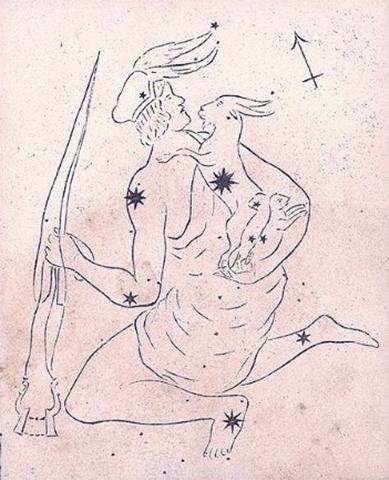
The Mesopotamian Crook staff was depicted as comparatibly short and
thus presumably broken, with only its top end at
Auriga and with its bottom part at Orion (the True Shepherd of Anu)
- without any curved crook, although a crook is the shepherd's
tool.
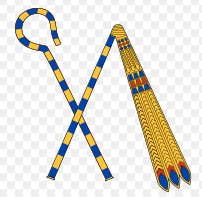
The adze (toki) was used for hewing out
canoes from tree
trunks. Feathers
→ Trees
→ Canoes (Sky - Land - Sea). The adze was a signature of the king and a kind of
creative staff. We should remember how Musa (Arabic for
Moses) with his divine staff struck upon rocks in order to
generate divine sweet water for his thirsty people when they migrated
through the desert from Egypt to the promised Land. The river of
the Milky Way was flowing between the short Crook and the staff of
the true Shepherd.
At Auriga / Orion, it seems, this great tool was
broken (→ Hatiga Te Kohe),
... They took their provisions with them,
carrying them on their shoulders, went on, and reached Te Pou.
They made camp and slept in Te Pou on the tenth day of
the month of July ('Anakena').
Then they all got up, carried their
provisions on their shoulders, went straight ahead, and followed
the path of the dream soul of Hau Maka. They came to
Hua Reva and said, This is Hua Reva A Hau Maka! They
went on and reached Akahanga, took a look at it and
looked around. They said: This is it! and gave the name
Akahanga A Hau Maka. They went on and came to Hatinga Te
Kohe and saw that in this place the kohe plant had
been broken. They all said, Here it is, the kohe plant,
troop of young men! This kohe plant had been broken by the feet
of the dream soul and therefore they gave the name Hatinga Te
Kohe A Hau Maka. They went on and came to Roto Iri Are.
Again they said, There it is, Roto Iri Are and named (the
place) Roto Iri Are A Hau Maka. They went on and reached
Tama. They looked around and said, This is Tama.
They gave the name Tama, an evil fish (he ika kino),
a very long nose (He ihu roroa). Again they went on and
came to One Tea. They saw it, looked around, and gave the
name One Tea A Hau Maka. Then they went on and came to
Hanga Takaure. There they gave the name Hanga Takaure A
Hau Maka. They made camp and rested at the Bay of Flies for
a week (etahi pohitu). On the eighteenth day of
the month of July (Anakena) they went on from Hanga
Takaure. They climbed uphill, went on, and reached
Poike. When they arrived, they looked around and named (the
place) 'Poike A Hau Maka' ... [E:22]
presumably in order to be regenerated whole again later, maybe by way of the
She Goat.
The Old Man with a stick in his right hand was depicted just above the
Pleiades Star Cluster and evidently at the right
ascension line for the northern spring equinox His
right hand stick was perhaps on its way to be mended into a new
crook, because in his left hand he held something promising,
a little reversed crook seemingly attatched to the outline of
the Auriga constellation.
... The old man gave the Raven two small
sticks, like gambling sticks, one black, one multicoloured. He
gave him instructions to bite them apart in a certain way and
told him to spit the pieces at one another on the surface of the
sea. The Raven climbed back up the pole, where he promptly did
things backwards, just to see if something interesting would
occur, and the pieces bounced apart. It may well be some bits
were lost. But when he gathered what he could and tried again -
and this time followed the instructions he had been given - the
pieces stuck and rumpled and grew to become the mainland and
Haida Gwaii ...
At MARCH 21 the E text has a reversed type of toki at a
tiny, yet forceful tea:
|
Nov 21 (506 - 181
= 325) |
→
22 (80 +
242 + 4 = 326) |
|
VISIBLE CLOSE TO
THE FULL MOON: |
|
Al Dabarān-2 (The
Follower)
HYADUM I =
γ
Tauri (63.4)
*22.0 = *63.4 - *41.4 |
HYADUM II = δ¹ Tauri
(64.2) |
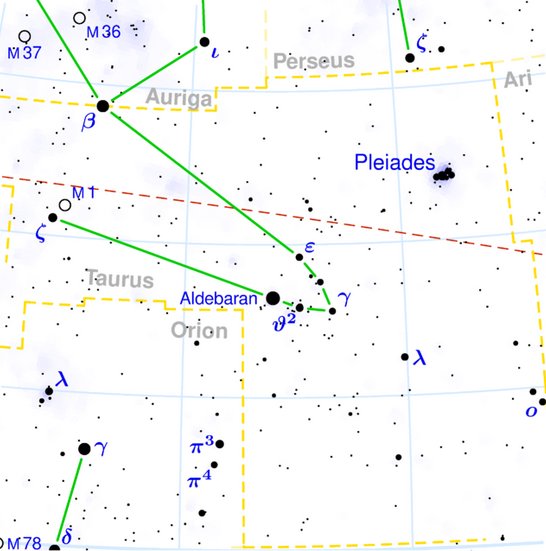 |
|
May 23 (508 = 444
+ 64 = *63) |
24 (*64 = 144 -
80) |
|
'April 26 (481 =
508 - 27) |
27 (*37 = *64 -
*27) |
|
"April 12 (*22) |
13 (144 - 41 =
103) |
|
MARCH 20 (*364 =
444 - 80) |
21 (80 = 144 -
64) |
 |
 |
|
Ea1-8 |
Ea1-9 |
|
rere te toki |
rere ki hau tea - eko te toki |
|
Toki.
Small basalt axe. Vanaga. Stone adze. Van
Tilburg. Ha'amoe ra'a toki = 'Put the adze to
sleep' (i.e. hide it in the temple during the
night). Barthel. Month of the ancient Rapanui
calendar. Fedorova according to Fischer. To'i.
T. Stone adze (e to'i purepure = with the
wounderful adze). Henry. The Araukan Indians in the
coastal area of northern Chile, have customs similar
to those on the Marquesas and in both areas toki
means adze according to José Imbelloni. The Araukans
also called their chief of war toki and the
ceremonial adze symbolized his function and was
exhibited at the outbreak of war. In Polynesia
Toki was the name of a chief elevated by the
Gods and his sign was the blade of a toki.
Fraser. Axe, stone hatchet, stone tool ...; maea
toki, hard slates, black, red, and gray, used
for axes T. P Pau.: toki, to strike, the edge
of tools, an iron hatchet. Mgv.: toki, an
adze. Mq.: toki, axe, hatchet. Ta.: toi,
axe. Churchill. A Maori saying: he iti toki, e
rite ana ki te tangata = though the adze be
small, yet does it equal a man. (Starzecka) |
|
→
INVISIBLY
CLOSE TO THE SUN: |
|
χ
Scorpii (245.1),
YED PRIOR (Hand in Front) =
δ
Ophiuchi,
δ
Tr.
Austr. (245.5) |
YED POSTERIOR (Hand Behind) =
ε
Ophiuchi,
RUKBALGETHI SHEMALI (Northern Knee of the Giant) =
τ
Herculis
(246.6).
δ
Apodis (246.7),
ο
Scorpii (246.8) |
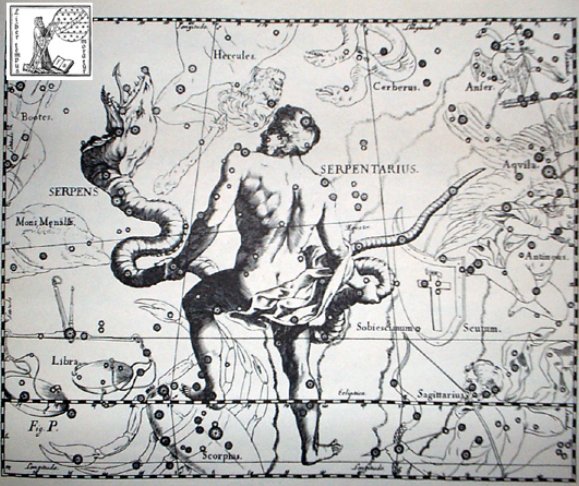
... The Hand in front
and the Hand behind are not referring
to the left respectively to the right hand
of the Serpent Carrier, instead they refer
to the front respectively the back side of
his left side hand (rima maori) ...
|
|
Nov 23 (327) |
24 |
25 (→
ANTARES) |
26 (*250) |
27 (→
150 +
181) |
28 (→
329 +
3) |
 |
 |
 |
 |
 |
 |
|
Ea1-10 |
Ea1-11 |
Ea1-12 |
Ea1-13 |
Ea1-14 |
Ea1-15 |
|
kua rere ki te marama -
koia ra - kua oho ki te marama |
ko agaagata aro huri a hiva |
kua noho i roto i to vai |
ka huki koe - mai tae huki
hia |
ko te tagata vero ki tai |
|
Aga. Work; to work, to
make, to build, to create: O te atua i-aga-ai
i te ragi, i te henua. God made heaven and
earth. Vanaga. Agahuru (hagahuru,
hagauru). Agai (hagai).
Agatahi (aga-tahi) one, (hagatahi);
agatahi ahi atu, day before yesterday;
hagatahi ahi, yesterday. Churchill.
Aro. Face, front, side
(of a figure); ki te aro o ..., to
the front of ... Vanaga. Presence, body,
frontispiece; ki te aro, face to face. P
Pau.: aroga, the visage; ki te aroga,
opposite. Mgv.: aro, presence, before;
i te aro, in the presence of. Mq.: aó,
face, in the presence of, before. Ta.: aro,
face, front, presence, view. It is probable that
more than one word is confounded in alo.
The significations which appear in Southeast
Polynesia are most likely derived from a
Tongafiti alo and do not appear in
Nuclear Polynesia. The alo belly and
alo chief which do occur in Nuclear
Polynesia are also probably Tongafiti, for in
Samoa and Tonga they are honorific and applied
only to folk of rank, a good indication of
borrowing by the Proto-Samoans from Tongafiti
masters. Churchill. In the Hawaiian group, the
western portion or side of an island was called
'the front', ke alo, of the land, and the
eastern side was called 'the back', ke kua.
The reason of such designations must be sought
in the fact of the arrival of the inhabitants
from the west. Fornander.
Huri. 1. To turn
(vt.), to overthrow, to knock
down: huri moai, the overthrowing of the
statues from their ahus during the period
of decadence on the island. 2. To pour a
liquid from a container: ka huri mai te vai,
pour me some water. 3. To end a lament, a
mourning: he huri i te tagi, ina ekó tagi
hakaou, with this the mourning (for the
deceased) is over, there shall be no more
crying. 4. New shoot of banana: huri
maîka. Vanaga. 1. Stem. P Mgv.: huri,
a banana shoot. Mq.: hui, shoot, scion.
2. To turn over, to be turned over onto another
side, to bend, to lean, to warp; huri ke,
to change, to decant; tae huri ke,
invariable; huri ke tahaga no mai, to
change as the wind; tae huri, immovable;
e ko huri ke, infallible; huhuri,
rolling; hakahuri, to turn over;
hakahuri ke, to divine. P Pau.: huri,
to turn. Mgv.: huri, uri, to turn
on one side, to roll, to turn upside down, to
reverse. Mq.: hui, to turn, to reverse.
3. To throw, to shoot. 4. To water, to wet. 5.
To hollow out. Hurihuri: 1. Wrath, anger;
kokoma hurihuri, animosity, spite, wrath,
fury, hate, enmity, irritable, quick tempered,
to feel offended, to resent, to pester;
kokoma hurihuri ke, to be in a rage. 2. (huri
4) hurihuri titi, to fill up. 3. To
polish. 4. (uriuri). Hurikea, to
transfigure, to transform. Churchill. Mq.
huri, resemblance. Sa.: foliga, to
resemble. Churchill.
Hiva. Name of the country
from where, according to tradition, came the
Polynesian immigration of Hotu Matu'a;
nowadays, this name designates any continent or
foreign country: tagata Hiva, foreigner,
person from the mainland. Vanaga. Strange,
alien, foreign; a stranger; kuhane hiva,
Holy Ghost; hakahiva: mata hakahiva,
to look back (? hakahira). Mq., Mgv.:
hiva, iva, a stranger, a person from
another district or country. Pau.: pure-hiva,
a butterfly. Churchill. H.: 1. Entirely black,
as of pigs offered to the gods, a desirable
blackness contrasting with uli and 'ele'ele,
which have pejorative connotations. 2. Choice.
3. A term qualifying coconuts and kava. Polo
hiwa, dark, glistening black, as clouds or
tapa. Ua hala i ke ao polohiwa a Kāne,
passed to the dark clouds of Kāne (death).
Hiwa hiwa, precious, beloved, esteemed,
petted, darling, indulged; favorite. Ka
Mesia, ka hiwahiwa a ke Akua, the Messiah,
the chosen of God. Ho'o hiwa hiwa to
honor, adorn, decorate; to display, as the flag;
to treat as a favorite; festive. He mea
ho'ohiwahiwa i ke akua, a thing to honor the
gods. 'O ka mea ho'ohiwahiwa i kāna kauā mai
kona wā 'u'uku mai, he who delicately brings
up his servant from his childhood. Wehewehe.
Iva. Nine. P Mgv., Mq.,
Ta.: iva, id. Churchill.
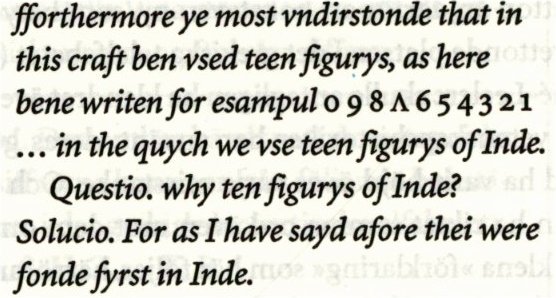 |
|
Net-19 (Crow)
AIN (Eye) =
ε
Tauri,
θ¹
Tauri,
θ²
Tauri (65.7) |
No star listed (66) |
No star listed (67) |
Rohini-4 (The Red One)
/
Pidnu-sha-Shame-4 (Furrow
of Heaven)
/
ANA-MURI-2 (Rear pillar - at the foot of which
was the place for tattooing)
ALDEBARAN = α Tauri
(68.2),
THEEMIN = υ² Eridani
(68.5) |
No star listed (69) |
No star listed (70) |
|
... There was no water in the village. The lakes
and rivers were dry. Raven and Crow, two young
girls who were having their first menstrual
courses, were told to go and draw water from the
ocean. Finding the journey too long, Raven
decided just to urinate into her basket-bucket.
She decieved no one and was severly scolded.
Crow returned much later but with drinking
water. As a punishment, Raven was condemned
never to find water in the summer; only in
winter would she find something to drink. For
that reason the Raven never drinks during the
hot months; she speaks with a raucous voice
because of her dry throat ... |
|
MARCH 22 |
23 |
24 |
25 (84) |
26 |
27 |
The figure looking back (with no future) in November 25 (329)
would return 8 days later in Ea1-20:
|
Nov 29 (333) |
30 |
 |
 |
|
Ea1-16 |
Ea1-17 |
|
ki te ika - kua moe ki te ravarava -
kua rere te toki |
|
Ika. 1.
Fish. 2. In some cases, animal in general: îka ariga
koreh[v?]a, animal with the face of a koreva
fish (name given to horses when they arrived on the
island, because of the resemblance of their heads with
that of a koreva). 3. Victim (wounded or killed),
enemy who must be killed, person cursed by a timo
and destined to die; îka reirei, vanquished
enemy, who is kicked (rei). 4. Corpse of man
fallen in war. Vanaga. 1. Fish, animal; ika rere,
flying fish; ivi ika, fishbone; mata ika,
pearl. P Pau., Mgv., Mq.: ika, fish. Ta.: ia,
id. 2. Prey, victim, sacrifice; ika ke avai mo,
abuse; hakarere ki te ika, to avenge. T Mgv.:
ikaiara, to quarrel; ikatamamea, to be angry
because another has handled one's property. Mq.: ika,
enemy, what causes horror. Ma.: ika, the first
person killed in a fight. Mangaia: ika, a victim
for sacrifice. 3? matamata ika, snow. Ikahi,
to fish with a line, to angle. Mq.: ikahi, id.
Ikakato, to go fishing. Ikakohau, to fish
with a line, to angle. Ikapotu, cape, end of a
voyage, destination; ikapotu hakarere, to abut,
to adjoin; topa te ikapotu, id.; tehe oho te
ikapotu, id.; mei nei tehe i oho mai ai inei te
ikapotu, as far as, to. Ikapuhi, to fish with
a torch. Mq.: ikapuhi, id. Churchill.
Moe.
To sleep, to lie at full length, to dream, to
brood, to place, to cohabit; moe atu, to leave
off, to desist; moe atu ra, to adjourn, to
postpone; moe hakahepo, to talk in the deep;
moe aherepo, somnambulist, sleepwalker; moe
hakataha, to sleep on the side; moe no, to
oversleep, concubinage; moe tahae, to be a light
sleeper; moe tahaga, a sleeper; moe
vaeahatu, moe hakaroa, to sleep sprawling;
rava moe, to sleep sound; ariga moe ki
raro, to lie flat on the ground; tae moe,
bachelor; hakamoe, to brood, to fold the wings;
to reserve, to lay up; to struggle. P Pau.: moe,
sleep. Mgv.: moe, sleep, to lie down, coitus, to
shut the eyes. Mq.: moe, to sleep, to lie down;
haámoe, to set down on the ground. Ta.: moe,
to sleep, to lie down. Moea raruga, lying flat.
Moeaivi, thin. Mq.: ivi, haáivi,
id. Ta.: ivi, id. Moega, mat. Pau.:
moehega, bed. Mgv.: moega, a sleeping mat.
Mq.: moena, moeka, mat, floor cloth, bed.
Ta.: moea, bed. Moemata, to sleep with the
eyes open; mea moemata, phantom. Moemoea,
a dream, vision; tikeahaga moemoea,
apparition by night. T Mgv., Mq., Ta.: moemoea,
dream. Churchill. Mgv. Moemoe, to steal, to
purloin at a food distribution. Mq.: moemoe, to
seize, to grasp. Churchill. Ta.: 1. Moemoe,
ambush. Ha.: moemoe, id. 2. Moemoe,
Phyllanthus simplex. To.: mohemohe, a tree.
Churchill. Mq.: Moehu, exiled, banished, prisoner
of war. Ma.: morehu, a survivor. Churchill.
Rava.
1. Enough, sufficient;
ku-rava-á, that's enough, it is
sufficient. 2. To be satiated, to be satisfied;
ku rava-á te tagata i te
kai, the man has eaten his fill. 3. Used very
commonly before verbs to express someone much inclined
towards this action:
tagata rava taûa, quarrelsome person;
rava kai,
glutton; rava haúru,
sleepy-head; rava kî,
chatterbox; rava tagi,
cry-baby; rava keukeu,
hard-working; vara
is often used instead of
rava. Vanaga. 1. [I have missed to copy
this page in Churchill.] 2. To get, to have, to conquer,
to gain, to obtain, invasion, to capture, to procure, to
recover, to retrieve, to find, to bring back, to profit,
to assist, to participate, to prosper;
mea meitaki ka rava,
to deserve. PS Pau.:
rave, to take. Mgv.:
rave, to
take, to acquire possession. Ta.:
rave, to
seize, to receive, to take. To.:
lava, to
achieve, to obtain. Viti:
rawā, to obtain, to accomplish ... 3. To know;
rava iu, to discern. 4. Large; hakarava,
to enlarge, to augment, to add. PS Sa.: lava,
large, very. 5. Hakarava, wide, width, across, to
put across, yard of a ship, firm; hakarava hakaturu,
quadrangular. P Mgv.: ravatua, the shelving ridge
of a road, poles in a thatch roof, a ridge. In the
Tongafiti speech this appears only in Maori whakarawa
to fasten with a latch of bolt ... 6. A prepositive
intensive; rava oho, to take root; rava keukeu,
to apply oneself; rava ahere, agile, without
fixed abode; rava ki, to prattle; rava vanaga,
to prate. Mq.: ava, enough, sufficient. 7.
Hakarava, gummy eyes, lippitude. 8. Hakarava
omua to come before, precede. Ravagei, to
prattle. Ravahaga, capture. Ravaika, to
fish. Mgv.: raveika, a fisherman. Mq.: avaika,
avaiá, id. Ravakai (ravekai),
glutton, insatiable; tae ravekai, frugal.
Ravakata (ravakakata), jovial, merry.
Ravaki, to prattle, to tell stories, loquacious,
narrator, orator, eloquent, to boast, to speak evil, to
defame, slander, gossip. Ravapeto, to blab, to
speak evil. Ravapure, fervent, earnest.
Ravavae, invention. Ravatere, to scare away.
Neku ravatotouti, agile. Ravavanaga,
loquacious, garrulous, to tell stories, narration.
Churchill. Ta.: raverave, a servant, to serve.
Ha.: lawelawe, to wait on the table, to serve.
Churchill. |
|
TABIT =
π³
Orionis
(71.7),
π²
Orionis (71.9) |
π4
Orionis (72.1),
ο¹
Orionis (72.4),
π5
Orionis (72.8)
*31.0 = *72.4 - *41.4 |
|
MARCH 28 |
29 (88) |
|
Dec 1 |
2 (336 = 2 * 118) |
3 (329 + 8) |
4 |
5 |
6 (340) |
 |
 |
 |
 |
 |
 |
|
Ea1-18 → 4 * 29½ |
Ea1-19 |
Ea1-20 |
Ea1-21 → 11 * 11 |
Ea1-22 |
Ea1-23 |
|
ki te marama |
koia ra - kua oho ki toona o te marama |
e agaagata era e |
ka oho koe - ki roto o te hare pure |
kua huki - koia |
kua huki - ku Rei ku huki hia
mai |
|
Aga. Work; to work, to make, to
build, to create: O te atua i-aga-ai i te ragi, i te
henua. God made heaven and earth. Vanaga. Agahuru
(hagahuru, hagauru). Agai (hagai).
Agatahi (aga-tahi) one, (hagatahi);
agatahi ahi atu, day before yesterday;
hagatahi ahi, yesterday. Churchill.
Rei.
1. To tread, to trample on: rei kiraro ki
te va'e. 2. (Used figuratively) away with you!
ka-rei kiraro koe, e mageo ê, go away, you
disgusting man. 3. To shed tears: he rei i te mata
vai. 4. Crescent-shaped breast ornament, necklace;
reimiro, wooden, crescent-shaped breast ornament;
rei matapuku, necklace made of coral or of
mother-of-pearl; rei pipipipi, necklace made of
shells; rei pureva, necklace made of stones. 5.
Clavicle. Îka reirei, vanquished enemy, who is
kicked (rei). Vanaga. T. 1. Neck. 2. Figure-head.
Rei mua =
Figure-head in the bow.
Rei muri = Figure-head in the stern. Henry.
Mother of pearl; rei
kauaha, fin. Mgv.:
rei, whale's
tooth. Mq.: éi,
id. This is probably associable with the general
Polynesian rei,
which means the tooth of the cachalot, an object held in
such esteem that in Viti one tooth (tambua)
was the ransom of a man's life, the ransom of a soul on
the spirit path that led through the perils of Na
Kauvandra to the last abode in Mbulotu. The word is
undoubtedly descriptive, generic as to some character
which Polynesian perception sees shared by whale ivory
and nacre. Rei kauaha
is not this rei;
in the Maori whakarei
designates the carved work at bow and stern of the canoe
and Tahiti has the same use but without particularizing
the carving: assuming a sense descriptive of something
which projects in a relatively thin and flat form from
the main body, and this describes these canoe ornaments,
it will be seen that it might be applied to the fins of
fishes, which in these waters are frequently ornamental
in hue and shape. The latter sense is confined to the
Tongafiti migration. Reirei, to trample down, to
knead, to pound. Pau.: Rei-hopehopega, nape.
Churchill. |
|
π¹
Orionis (73.0),
ο²
Orionis (73.4),
HASSALEH =
ι
Aurigae
(73.6),
π6
Orionis (73.9)
*32.0 = *73.4 - *41.4 |
ALMAAZ (The Male Goat) =
ε
Aurigae
(74.7),
HAEDUS I =
ζ
Aurigae
(74.8) |
HAEDUS II = η Aurigae
(75.9) |
5h (*76.1)
ε
Leporis (76.0),
CURSA (Footstool) =
β
Eridani (76.4),
λ
Eridani (76.7)
*35.0 = *76.4 - *41.4 |
μ Aurigae, μ Leporis (77.6 |
ĸ Leporis (78.0),
RIGEL (Foot) =
β
Orionis
(78.1),
Flaming Star = IC405
(78.2),
CAPELLA (Mother Goat) =
α
Aurigae (78.4),
ο
Columbae,
τ
Orionis (78.8)
*37.0 = *78.4 - *41.4
THUBAN (α Draconis) |
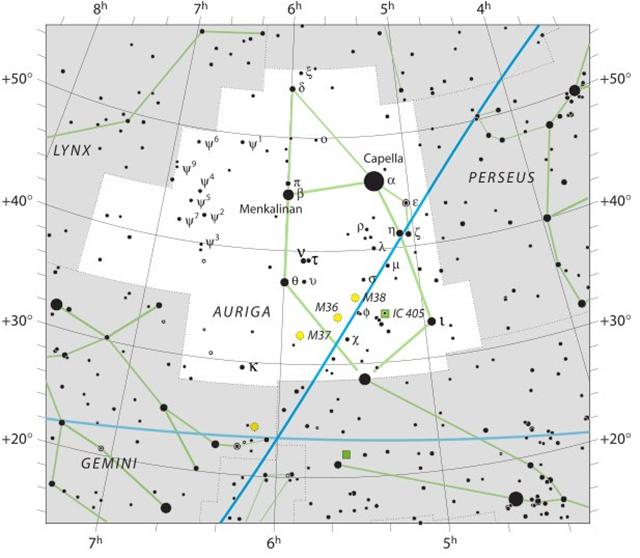 |
|
MARCH 30 |
31 (90) |
APRIL 1 |
2 |
3 |
4 |
And at 6h was the Lord of Created Beings. Was this place
therefore corresponding to a purple royal corner named Toki?
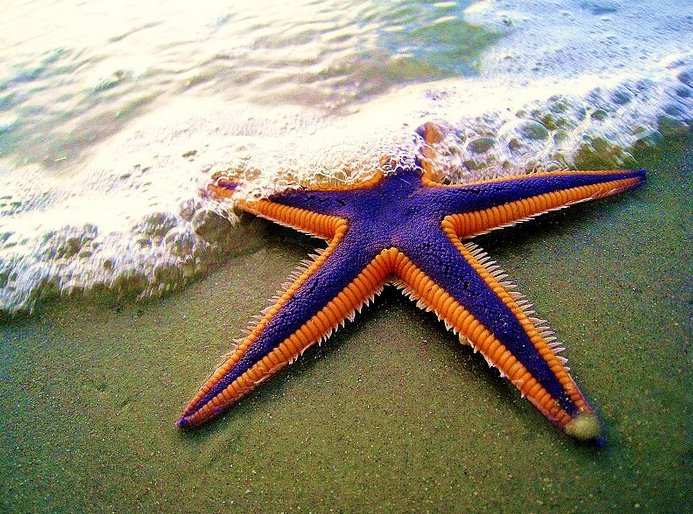
|
Dec 7 |
8 (342) |
9 |
10 |
11 |
12 |
13 |
14 |
15 (349) |
 |
 |
 |
 |
 |
 |
 |
 |
 |
|
Ea1-24 |
Ea1-25 |
Ea1-26 |
Ea1-27 |
Ea1-28 |
Ea1-29 |
Ea1-30 |
Ea1-31 |
Ea1-32 |
|
ko te tagata - kua rere te toki |
ko te vere a uta - ko te vere a
tai kua vere |
ko te marama |
kua oho i mua kia ia - i te vai |
mai tae huki hia - ko koe ra |
kua huki |
|
λ
Aurigae (79.0), λ Leporis (79.6), ρ Aurigae (79.7)
|
Shur-narkabti-sha-iltanu-5
(Star in the Bull towards the north)
σ
Aurigae (80.4), BELLATRIX (Female Warrior) =
γ
Orionis, SAIF AL JABBAR (Sword of the Giant) =
η
Orionis
(80.7),
ELNATH (The Butting One) =
β
Tauri =
γ
Aurigae
(80.9) |
ψ
Orionis (81.1),
NIHAL (Thirst-slaking Camels) =
β
Leporis
(81.7) |
KHUFU
MINTAKA (Belt) =
δ
Orionis,
υ
Orionis (82.4),
χ
Aurigae (82.5),
ε
Columbae (82.6)
*41.0 = *82.4 - *41.4
→ 41 Arietis (Bharani) |
KHAFRE
Al Hak'ah-3 (Brand)
/
Mrigashīrsha-5 (Stag's
Head)
/
Turtle Head-20 (Monkey)
/
Mas-tab-ba-tur-tur (Little
Twins)
ARNEB =
α
Leporis, CRAB NEBULA = M1 Tauri
(83.0,
φ¹
Orionis (83.1),
HEKA =
λ
Orionis, ORION NEBULA = M42
(83.2),
φ²
Orionis (83.6),
ALNILAM (String of Pearls) =
ε
Orionis
(83.7) |
MENKAURE
Three Stars-21 (Gibbon)
/
Shur-narkabti-sha-shūtū-6 (Star in the Bull towards
the south)
/
ANA-IVA-9 (Pillar of exit)
HEAVENLY GATE =
ζ
Tauri,
ν
Columbae (84.0),
ω
Orionis (84.2),
ALNITAK (Girdle) =
ζ
Orionis,
PHAKT (Phaet) =
α
Columbae
(84.7) |
ο Aurigae (85.8), γ Leporis (85.9)
YANG MUN (α Lupi) |
μ
Columbae (86.1),
SAIPH (Sword) =
κ
Orionis
(86.5),
τ
Aurigae,
ζ
Leporis (86.6) |
υ
Aurigae (87.1),
ν
Aurigae (87.2),
WEZN (Weight) =
β
Columbae,
δ
Leporis (87.7),
TZE (Son) =
λ
Columbae
(87.9) |
|
APRIL 5 |
6 |
7 |
8 |
9 (99) |
10 (*20) |
11 |
12 |
4-13 |
The glyph structure does not end with the last glyph in line
Ea1:
|
Dec 16 (350) |
17 |
18 |
19 |
20 (354) |
Solstice |
 |
 |
 |
 |
 |
 |
|
Ea2-1 |
Ea2-2 |
Ea2-3 |
Ea2-4 (36) |
Ea2-5 |
Ea2-6 (32 + 6) |
|
E tagata vaha ura - e rere te
toki - e rere ki uta |
rere te toki rere ki te vao - e
hokohuki rere te toki - rere ki uta i te henua -
rere te toki |
|
Ura, lobster. Ûra,
flame, blaze (ûra ahi), to become furious
(with manava as subject: ku-ûra-á te
manava). Úraúra, bright red. Vanaga. 1.
Crayfish, lobster, prawn. P Mgv.: ura,
crayfish. Mq.: uá, lobster. Ta.: oura,
crayfish, lobster. 2. Fire, burning, to be in
flames; uraga, combustion, flame, torch;
hakaura, to cause to glow, to kindle, to light.
P Mgv., Ta.: ura, a flame, to burn. Mq: uá,
id. Uraga, burden, load, weight. Uraura,
vermilion, scarlet. P Pau.: kurakura, red.
Mgv.: uraura, an inflamed countenance. Mq.:
uáuá, red, ruddy. Ta.: uraura, red.
Churchill. |
|
Ardra-6
(The Moist One)
/
ANA-VARU-8
(Pillar to sit by)
χ¹
Orionis,
ξ
Aurigae (88.1),
BETELGEUZE =
α
Orionis
(88.3),
ξ
Columbae (88.5),
σ
Columbae (88.7)
ZUBEN ELGENUBI (α Librae)
|
η
Leporis (89.0),
PRAJA-PĀTI (Lord of Created Beings) =
δ
Aurigae,
MENKALINAN (Shoulder of the Rein-holder) =
β
Aurigae, MAHASHIM (Wrist) =
θ
Aurigae,
and
γ
Columbae (89.3),
π
Aurigae (89.4),
η
Columbae (89.7)
*48.0 = *89.4 - *41.4 |
μ Orionis (90.3), χ² Orionis (90.5) |
6h (91.3)
ν
Orionis (91.4),
θ
Columbae (91.5),
π
Columbae (91.6)
*50.0 = *91.4 - *41.4 |
ξ Orionis
(92.5 |
Al Han'ah-4 (Brand)
/
Maru-sha-pu-u-mash-mashu-7
(Front of the Mouth of the Twins)
TEJAT PRIOR =
η
Gemini
(93.4),
γ
Monocerotis (93.5),
κ
Aurigae
(93.6),
κ
Columbae (93.8)
*52.0 = *93.4 - *41.4 |
|
4-14 |
APRIL 15 |
16 |
17 (107) |
18 |
19 (*29) |
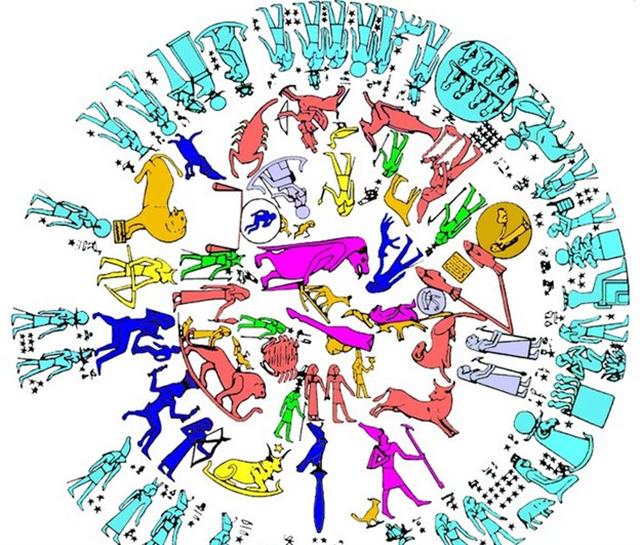
|

































